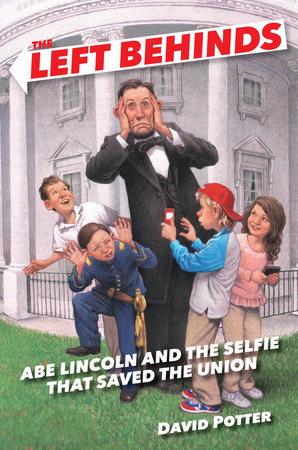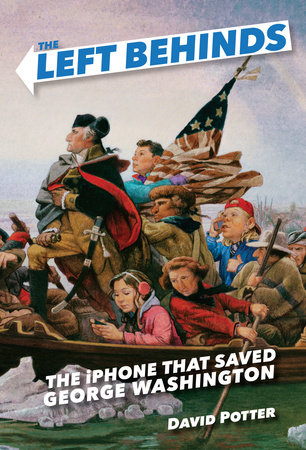Will Today’s Tech-Savvy Kids Care About History?
by David Potter
I see smart kids.
They’re everywhere.
I talk to 12-year-olds who understand “the cloud” better than I do — and no, I’m not talking about the kind of cloud that produces rain, I mean the computer data cloud.
These kids are tech-savvy, quick learners. They use apps I never heard of and have the ability to absorb a great amount of information all at once. Some are given laptops at school and upload homework assignments via Google Drive; others have Smart Boards in their classrooms and refer to YouTube videos for their research projects.
In case you’re wondering, this is no fad. Digitization is as transformative today as industrialization was in the 19th century. It’s hardly bold to say that technology will only get faster, smaller, more innovative, and more amazing in the coming years. I’m not sure we’ll ever be ready for lifelike robotic teachers, but I wouldn’t bet against it.
But: Do today’s smart kids know about history, particularly American history?
More important, do they even care?
As the writer of a middle grade series, The Left Behinds, that has a decided historical bent, I am happy to report that, according to the kids I have talked with recently, history is alive and well. The premise of the series is that a trio of modern-day sixth-graders use an app on their phones, called iTime, to go back to pivotal points in American history. A few months ago I was scheduled to speak — via Skype, of course — with an after-school book club in Michigan. Were the club members familiar with George Washington? The American Revolution? The Crossing of the Delaware?
I need not have worried. Perhaps because they have access to information above and beyond what they’ve learned in school, these kids know the facts, have their own opinions, and are able to think on their feet. I asked them what they would do if, in December 1776, when all looked bleak for the Revolutionary cause, they were in George Washington’s shoes. His troops had been defeated in New York and pushed across New Jersey to Pennsylvania, and most of his soldiers’ enlistment periods were up at the end of the month. If the British captured General Washington, he certainly would be hanged from the nearest tree. Should he surrender? Run for the hills? Or attack the Hessians at Trenton on Christmas night?
And what would have been the consequences if the attack hadn’t occurred, or failed?
Would the United States of America as we know it even exist?
What would that mean to them, as twelve and thirteen-year-olds?
We took a vote. It was nearly unanimous — attack! (One thoughtful girl voted to run, because to her it was the most logical thing to do — and said the others voted to attack only because they knew that decision had a successful outcome.)
Now, it goes without saying that in 1776 neither George Washington nor kids their age had cell phones in their pockets, nor were they tweeting, posting, or Snapchatting. But the country that was founded then is the very same country we all live in now. We are, in fact, the rebel alliance that succeeded — we defeated an empire and established an enduring republic. It’s not called Washington, DC, for nothing, after all.
In ten, twenty, thirty years, these kids — today’s twelve-year-olds — will be fully functioning adults with their own lives, families, and careers. Moreover, at some point (2056, perhaps?) they will be totally in charge of these United States. It will be their job to pass the country along, intact and maybe even a little better, to the generation that follows them.
They inevitably will face a rough patch or two where they will have to make decisions without technology or help from a device. Our shared history is the user’s guide, as it were, to our core values and our common beliefs, things that don’t need to be, and can never be, digitized. From the smart, knowledgeable kids I’ve met in the past year or so, I have every confidence that our future will be nothing short of awesome.
Huzzah!


